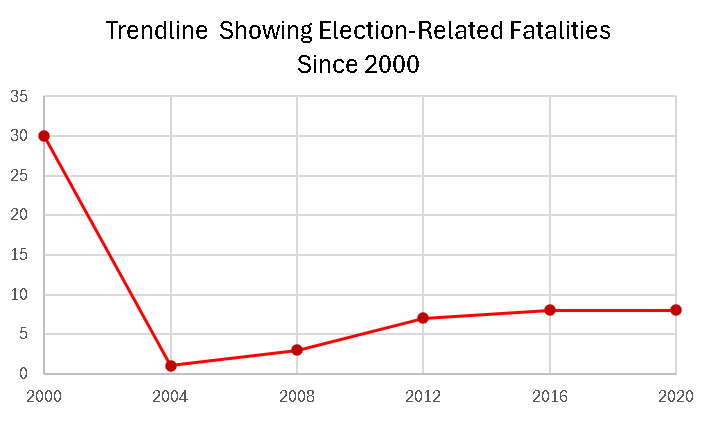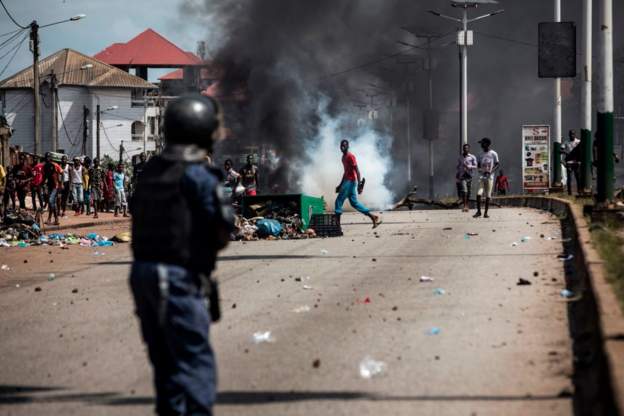Horrific statistics: Election violence claims 57 lives since 2000
Ghana has witnessed a disturbing trend of election-related violence over the past two decades, resulting in the loss of nearly 60 lives.
According to records, the worst incident occurred in 2000, when 30 people lost their lives in clashes.
Since then, the number of fatalities has fluctuated, with one death recorded in 2004, three in 2008, seven in 2012, eight in 2016, and eight in 2020.
These incidents have raised concerns about the safety and security of citizens during elections.
The violence has been attributed to various factors, including clashes between supporters of rival political parties and security forces. In some cases, the violence has been linked to disputes over election results and allegations of electoral malpractice.
As Ghana prepares for another general election, there are fears that the trend may continue.
The government and electoral authorities have been urged to take measures to prevent violence and ensure a peaceful and credible electoral process.

Renowned security expert Professor Aning has expressed deep concern over the recurring issue of election violence in Ghana.
The Director of the Faculty of Academic Affairs & Research at the Kofi Annan International Peacekeeping Training Centre has raised serious concerns about accountability and justice.
“I think it’s unfortunate that over all these years we tend to lose lives, and we haven’t made conscious efforts to bring the perpetrators to book,” Professor Aning lamented.
He emphasized that the lack of deterrence emboldens perpetrators.
“I find it very disturbing and painful that almost 60 precious lives have been lost in the quest for political power and that no one has been punished,” Professor Anin said.
“I am concerned about the lack of punishment because it is meant to send a signal and be a deterrent that violence is not accepted or is not an acceptable form of political expression. Now, when atrocities or impunity are not dealt with, over time, people tend to believe that we can go scot-free when they perpetuate such atrocities,” he added.
“In case of any situation, it is the law enforcement that must be proactive and pick up people whose behaviour can be threatening to others or can be inciteful towards encouraging people to be violent.”
He also highlighted the disturbing correlation between violence and political power, where individuals who engage in violent behaviour are rewarded with positions if their party wins.
“There’s a direct positive correlation between the promise and the action of being violent, either physically or psychologically, and your party winning power because you will be given a position. So, although the two men, John Dramani Mahama and Dr. Mahamudu Bawumia themselves, may not be violent and have dissociated themselves from it, those in their parties who have given or made violent statements will not be denied positions if they win. So, that creates this impression that violence is a currency, which it is every time there is an election, but that is a currency we need to dissociate ourselves from. It’s crude, it’s dangerous, it undermines our stability, and it threatens people’s trust in our institutions,” Professor Anin warned.


